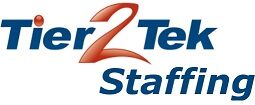Understanding Leadership Qualities
Leadership is a multifaceted attribute that goes beyond mere management skills. It encompasses the ability to set and achieve goals, inspire and motivate a team, and navigate through complex situations with strategic foresight. A leader should possess strong communication skills, emotional intelligence, and the ability to foster a positive work environment. They should be adept at conflict resolution, decision-making, and exhibit a high level of integrity and accountability. Understanding these qualities is crucial in identifying potential leaders.
- Vision and Innovation: Ability to conceptualize and articulate a compelling vision for the future.
- Emotional Intelligence: Proficiency in managing one’s emotions and understanding others’.
- Decision-Making: Capability to make informed and timely decisions.
- Inspiration and Motivation: Skill in encouraging and motivating team members.
- Integrity and Accountability: Upholding ethical standards and taking responsibility.
Analyzing Past Performance and Experience
Evaluating a candidate’s past performance and experience is a reliable indicator of their potential leadership capabilities. By examining their previous roles, you can identify instances where they have taken initiative, driven projects to success, or navigated challenging situations effectively. This historical perspective can reveal patterns of behavior and skills that are indicative of a natural leader.
- Initiative and Drive: Instances where the candidate proactively took charge or introduced improvements.
- Project Successes: Successful completion and management of significant projects.
- Leadership Roles: Previous positions of leadership and their outcomes.
- Problem-Solving Skills: Examples of overcoming challenges or obstacles.
- Team Management: Experience in managing and leading teams effectively.
Behavioral Interview Techniques
Behavioral interviews are a powerful tool in assessing a candidate’s leadership potential. By asking candidates to describe specific instances where they have demonstrated leadership qualities, you gain insight into their real-world application of these skills. This approach helps in understanding how they approach challenges, interact with team members, and handle pressure.
- Conflict Resolution: How the candidate has handled disagreements or conflicts.
- Strategic Planning: Instances of long-term planning and execution.
- Team Motivation: Examples of motivating and inspiring team members.
- Adaptability: Ability to adapt to changing circumstances and environments.
- Communication Skills: Effectiveness in communicating ideas and instructions.
Psychometric Testing
Psychometric testing offers an objective means to evaluate a candidate’s personality traits and cognitive abilities, which are crucial in leadership roles. These tests can measure a range of attributes, including problem-solving skills, emotional intelligence, and interpersonal skills. The results provide valuable insights into how a candidate might perform in a leadership position and interact with others.
- Personality Traits: Assessment of traits like extroversion, agreeableness, and conscientiousness.
- Cognitive Abilities: Evaluation of problem-solving skills and analytical thinking.
- Leadership Styles: Insights into the candidate’s preferred leadership approach.
- Emotional Intelligence: Measurement of the candidate’s ability to understand and manage emotions.
- Interpersonal Skills: Assessment of communication and team interaction skills.
Role-Specific Case Studies
Presenting candidates with role-specific case studies is an effective way to assess their practical application of leadership skills. By giving them hypothetical scenarios relevant to your industry, you can evaluate their problem-solving abilities, strategic thinking, and decision-making skills. This method provides a glimpse into how they might handle real-life situations in your organization.
- Problem-Solving Ability: How the candidate approaches and solves complex scenarios.
- Strategic Thinking: Ability to develop and implement effective strategies.
- Industry Knowledge: Understanding and application of industry-specific knowledge.
- Creativity and Innovation: Use of creative solutions in problem-solving.
- Decision-Making: Capability to make informed decisions under pressure.
Assessing Emotional Intelligence

Emotional intelligence is a key component of effective leadership. It involves the ability to understand and manage one’s own emotions, as well as the capacity to empathize with others. During the interview process, assess a candidate’s emotional intelligence through targeted questions and observe their interactions. High emotional intelligence is often correlated with strong leadership, as it affects how they manage teams and handle stressful situations.
- Self-Awareness: Recognition and understanding of one’s emotions.
- Self-Regulation: Ability to control or redirect disruptive emotions and impulses.
- Empathy: Understanding the emotional makeup of other people.
- Social Skills: Proficiency in managing relationships and building networks.
- Motivation: Tendency to work for internal reasons beyond status and money.
Leadership Assessment Centers
Leadership assessment centers provide a controlled environment where candidates’ leadership abilities can be evaluated through various exercises. These centers simulate real-life scenarios and challenges, offering a comprehensive view of a candidate’s leadership style, decision-making process, and interaction with others. The activities and simulations are designed to reveal key leadership competencies and potential.
- Group Exercises: Activities that assess interaction and influence within a group.
- Role-Play Scenarios: Simulations of real-life leadership challenges.
- In-basket Exercises: Tasks that mimic the workload and decisions of a leader.
- Presentation Exercises: Opportunities to demonstrate communication and persuasion skills.
- Feedback and Reflection: Insights into the candidate’s ability to receive and act on feedback.
Reference Checks
Conducting reference checks is an invaluable step in gaining insights into a candidate’s past leadership experiences and behaviors. Speaking with former employers, colleagues, and subordinates can provide a well-rounded view of how the candidate performed in previous leadership roles. This feedback can highlight strengths and potential areas for development that may not be evident in an interview setting.
- Leadership Impact: Feedback on the candidate’s effectiveness as a leader.
- Team Dynamics: How the candidate influenced team morale and productivity.
- Conflict Management: Instances of managing and resolving conflicts.
- Professional Growth: Observations on the candidate’s development over time.
- Reliability and Ethics: Insights into the candidate’s integrity and dependability.
Identifying Potential for Growth

Assessing a candidate’s potential for growth is as important as evaluating their current abilities. Look for individuals who demonstrate a willingness to learn, adapt, and take on new challenges. During the interview process, assess their curiosity, adaptability, and ambition. Candidates with high potential often exhibit a continuous desire for personal and professional development.
- Learning Agility: Ability to learn quickly and apply new knowledge.
- Adaptability: Flexibility in adjusting to new situations and challenges.
- Ambition and Drive: Desire to achieve and willingness to take on challenges.
- Curiosity: A natural inclination to seek out new experiences and knowledge.
- Feedback Reception: Openness to receiving and acting on feedback.
Team Interaction Observations
Observing how candidates interact with potential team members can provide real-time insights into their leadership style. This can be done through group interviews or team-based exercises. Pay attention to how they communicate, collaborate, and influence others. These interactions can reveal much about their ability to lead effectively within your organization.
- Communication Style: How the candidate communicates with team members.
- Collaboration: Ability to work effectively with others towards a common goal.
- Influence: Capacity to persuade and motivate team members.
- Conflict Handling: Approach to resolving disagreements or tensions.
- Team Dynamics: Impact on the overall dynamics and morale of the group.
Evaluating Decision-Making Skills
Effective leaders are characterized by their ability to make informed, timely decisions. Assess candidates’ decision-making skills by discussing past experiences where they had to make significant decisions. Present them with hypothetical scenarios that require quick and thoughtful decision-making. Look for candidates who demonstrate a balance between decisiveness and careful consideration of various factors.
- Analytical Thinking: Ability to analyze information and identify key issues.
- Risk Assessment: Skill in evaluating risks and potential impacts.
- Judgment: Quality of decisions made in past leadership roles.
- Decisiveness: Ability to make decisions promptly when necessary.
- Problem-Solving: Approach to identifying solutions and resolving issues.
Assessing leadership potential in candidates is a multifaceted process that requires a combination of techniques and insights. By thoroughly evaluating a candidate’s past experiences, behavioral tendencies, emotional intelligence, and potential for growth, hiring managers can make informed decisions. The goal is to identify individuals who not only fit the current role but also possess the potential to evolve and contribute significantly to the organization’s future success.
